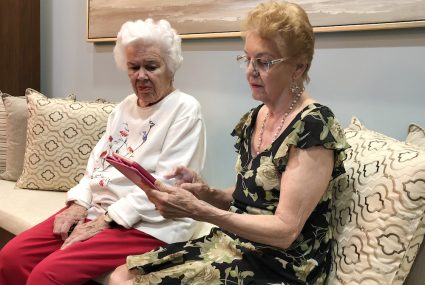Seniors are commonly targeted by fraudsters. The assumption is that it will be easy to get them to provide sensitive information or even send money, simply because they are less familiar with technology. When it comes to fraud prevention, it’s really all about education. It’s important to make sure seniors know what to watch out for in order to keep them safe from fraud.
Fight Scams Targeting Seniors
There are a wide variety of scams that specifically target seniors. If they know what to watch out for, they’ll be able to recognize when something seems suspicious. Make sure they know about the most common types of scams targeting seniors:
Lottery scams
In this scam, seniors are contacted via phone, email, mail, or social media and told that they have won a prize. The catch is, they’ll need to pay a small advance fee in order to get access to their winnings. Of course, once the fee is paid, they never receive a prize. Make sure that seniors know that in order to win any lottery in Canada, they need to have purchased a ticket. Anything they don’t have a ticket for is likely a scam. Any real winnings would also never require a payment in order to access the prize.
Emergency scams
In this one, seniors receive a phone call claiming that a family member is in trouble and needs money immediately. They will ask you to send money via bank transfer or prepaid gift cards. This scam can be particularly alarming since it creates an element of panic and worry. Make sure your loved one knows to ask the right questions in this scenario. They should call another family member to confirm the story before they do anything. Make sure they also know never to give out any personal details (names or information about family members) or financial details over the phone.
Service scams
This typically involves a phone call from a well-known computer company claiming that your computer needs service. They will ask you for information to remotely access your computer and install software that allows them to access sensitive information. They may also ask for a fee for the service. Make sure your loved one knows that these companies never make calls about computer updates or service requirements. They should also know to never provide remote access to their computer at any time.
Romance scams
In this type of scam, seniors will be approached online through a dating or social media site. Scammers quickly work to establish a relationship and gain trust, and will often claim to work overseas. Soon after, they start to ask for money. To stay safe, seniors should know to be wary of anyone they meet online, especially if the relationship seems to be moving very quickly. As soon as anyone asks them for money, they should know to be suspicious.
How to Prevent Scams Targeting Seniors
These are just a few of the most common types of scams used to target seniors. However, there are a wide variety of schemes out there. This is why it’s important for seniors to be aware of a few general fraud prevention tips. By following these rules, they’ll dramatically reduce their chances of becoming a victim of fraud.
- Pay close attention to your finances. Keep track of your account activity and credit card statements. If you notice anything that looks strange, contact your bank right away.
- Don’t loan out money to anyone. Be suspicious of anyone who asks for money, even those who you know.
- Keep your financial information close. Don’t discuss your finances openly and try to keep those conversations only to trusted family members and those who are involved in managing your money.
- Be smart when meeting new people. If a new relationship seems to be moving too fast, it’s good to question it.
- Don’t share your banking information over the phone, or anywhere online. Don’t share any of your passwords with anyone.
- Be tech savvy. The more comfortable you become with using your computer, the easier it will be to spot suspicious activity.
At Bria Communities, we work closely with our residents to keep them safe from scams. a 24 hour reception desk means fraudsters don’t have physical access to their homes. Residents also have private phone numbers that can only be used by people who are given the phone number to call in. Our staff take an interest in residents lives and are quickly able to identify and alert any suspicious behaviour surrounding residents. We find that when seniors are surrounded by people they trust and who are looking out for them, they’re much less likely to fall victim to fraud.

Comments